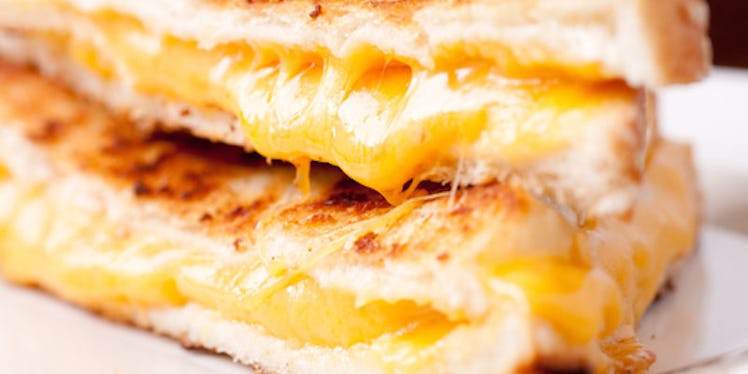Cheese makes life better in a variety of ways, like when it's melted on top of a fresh Margherita pizza, or smushed between two slices of grainy bread with turkey and a little mayonnaise.
Cheese is so multifarious, it's delicious in both a savory and sweet way, like when it's used to make your favorite NY-style cheesecake, or squeezed between the crunchy cinnamon shell of a chocolate-chip cannoli.
Basically, if cheese is crack, then crack ain't whack. Because an addiction to cheese is an addiction we don't mind having, and science suggests it's even a possibility.
A recent study, published by the US National Library of Medicine, used the Yale Food Addiction Scale and 500-plus participants to identify which foods, and which nutritional attributes, were tied to addictive-like eating behaviors.
The results of the study indicated processed foods and foods with higher fat content and glycemic load (GL) show a strong association with "food addiction." In other words, the more processed and fattier the food, the more addicting it is.
When paired with some of our most treasured indulgences, like pizza and macaroni and cheese, cheese plays a major role in their addiction factor.
A dairy product, cheese also contains a protein called casein, which is better explained by Registered Dietitian Cameron Wells, who told Mic,
[Casomorphins] really play with the dopamine receptors and trigger that addictive element.
And that's how the blue cheese crumbles.
So go run and tell all your friends: You're a verified addict in the name of ooey, gooey, melt-in-your-mouth, put-it-on-a-cracker-and-wash-it-down-with-wine, cheesy goodness. And you don't care who knows it!
Citations: Which foods may be addictive? The roles of processing, fat content, and glycemic load. (US National Library of Medicine), Cheese really is crack. Study reveals cheese is as addictive as drugs (LA Times)
